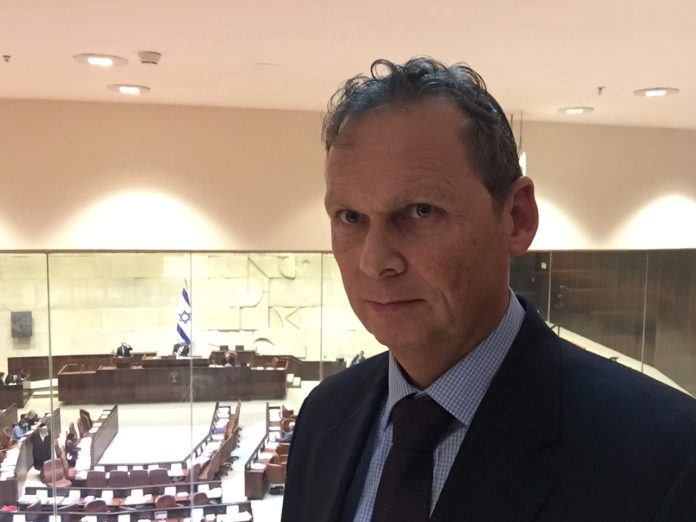
By James Marlow
Just over three months to go before Israelis choose which political party would best represent them in the Knesset and in the last week we have seen the left, the right and the centre completely split from each other and break off into brand new factions.
In the 2015 election, 30 political parties ran with only 10 actually gaining entry into the Knesset, due to the raising of the minimum amount of votes a party must receive. This rise of the threshold to 3.25% (which is equivalent to 4 Knesset seats) could now severely hurt some well-known parties and Knesset members.
First, education minister Naftali Bennett, justice minister Ayelet Shaked and fellow MK Shuli Moalem-Refaeli walked away from the Jewish Home party to form a new right wing bloc in order to attract both religious and secular Jews.
Zionist Union head Avi Gabbay kicked out former Prime Minister designate, Tzipi Livni and her faction of 5 MKs during a press conference but failed to find the basic decency and courtesy to first tell Livni that he was disbanding the Zionist Union. He said that he was bringing back the name Labor and wished Livni good luck in the process “with whatever party you choose to run it”.
The Zionist Union led by Avi Gabbay had been polling just 7 seats and believed if he sacked Livni, his poll ratings would increase. This week a survey showed that Labor is still on 7 seats – a far distance from when Shimon Peres won 46 seats in the 1984 election.
Sadly for Tzipi Livni, she was left sitting in front of the cameras in shock and refused at that time to make a statement. She has since made her feelings very clear towards Gabbay and they are not very pleasant words.
On the centre where Yair Lapid and his Yesh Atid party were at one time sitting quite comfortably polling up to 25 seats, former IDF Chief of Staff Benny Gantz has now jumped into the ring forming his new party.
Amazingly Gantz has so far not said one word on where he stands on any political issue in Israel but is still polling at 15 seats. This is because many Israelis are desperate for a fresh new political face untainted with any negative words, infighting or allegations and so far “most” don’t disagree with anything he has said – because he has not said anything.
Adding to the centre is Moshe Ya’alon who was also once Chief of Staff and Likud MK but announced his new party, as he also believes like others that he too can become a GREAT Prime Minister and that the country is desperate for his leadership.
Orly Levy-Abekasis who quit Avigdor Lieberman’s Yisrael Beitenu party in 2016 to sit in the Knesset as an independent has launched her new party and is polling 5 seats, while former Shas head Eli Yishai is considering whether to run with a new party.
In fact the four Arab factions that joined for the 2015 election and looked the most likely to break within months of gaining Knesset entry are still together. The Joint List is the third largest party in the Knesset but its factions are so fundamentally different from each other. Ra’am and Ta’al are mostly Islamist lists while Balad is almost a completely secular but extremely militant faction and Hadash are the Communist Party. But they prove they can unite for the sole purpose of opposing the Jewish Israeli state under the leadership of Communist MK Ayman Odeh. Perhaps Jewish Knesset members and especially their party leaders can learn something from the Arab List and cease the childish behaviour of all wanting to lead and become Prime Minister. If the Israeli electorate see that politicians from the same camp are unable to work together just before a crucial general election when Hamas, Hezbollah and Iran are on its borders, how are they supposed to decide who to vote for?

James Marlow is a journalist and international news contributor. Email: James@TheJewishWeekly.com Follow twitter: @James_J_Marlow









